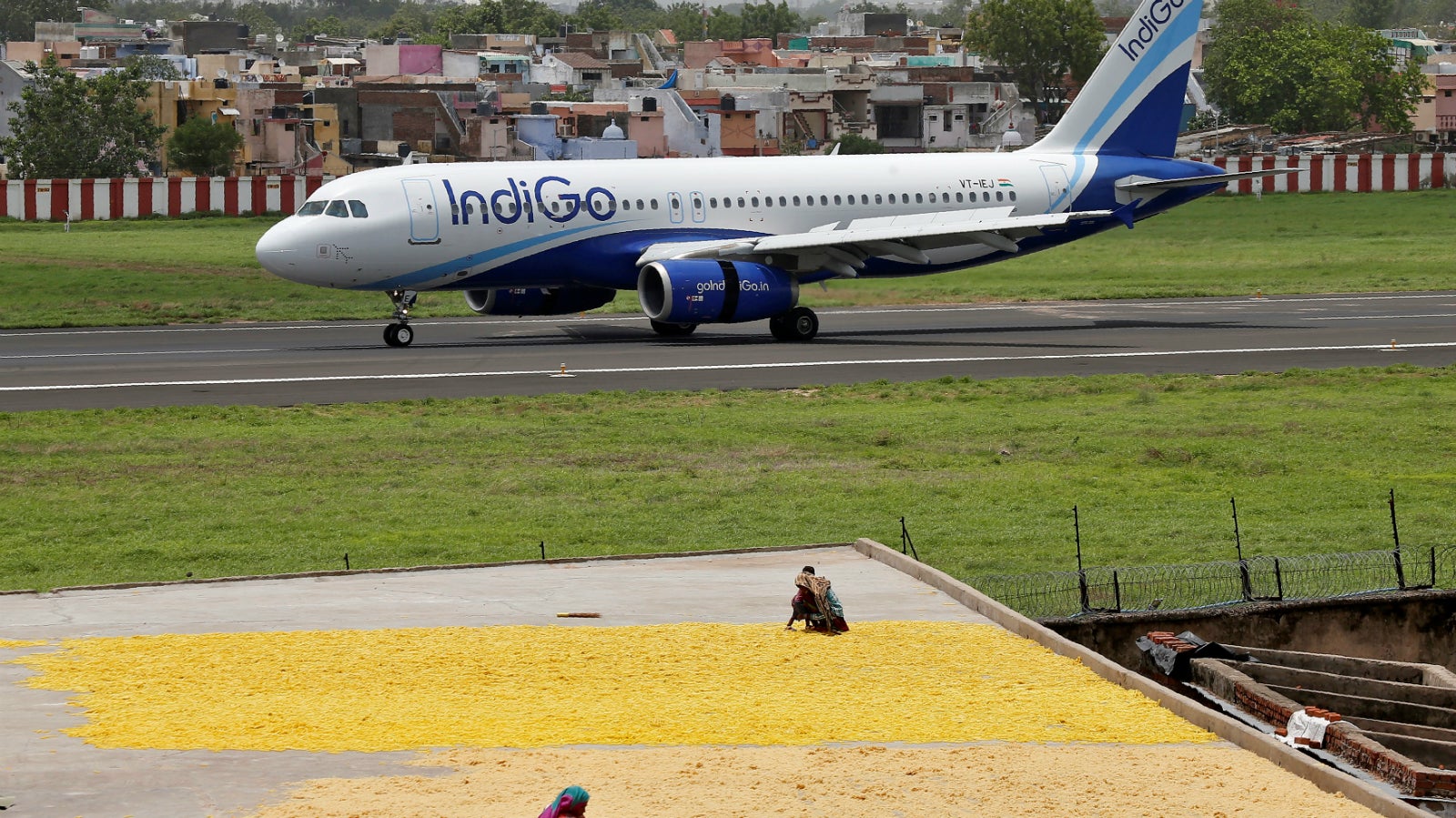India’s biggest airline keeps flying into one crisis after another
India’s biggest airlines, IndiGo, has reported its lowest quarterly profit since its IPO three years ago, dragged down by macroeconomic factors.


India’s biggest airlines, IndiGo, has reported its lowest quarterly profit since its IPO three years ago, dragged down by macroeconomic factors.
For the quarter ended June, InterGlobe Aviation’s net profits nosedived 97% year-on-year to Rs28 crore ($4 million). InterGlobe Aviation is IndiGo’s holding firm.
“The company has been hit by the twin factors of cost and revenue. Rising fuel price and an impact on the exchange rates are the cost impacts,” said Kapil Kaul, CEO of aviation advisory firm CAPA.
For the quarter ended June, IndiGo’s fuel expenses alone rose 54% year-on-year. Globaly crude oil prices have risen sharply, touching the highest levels since 2014 in June. At the same time, the rupee fell to a lifetime low of Rs69.01 against the US dollar in June.
The company said its earnings had been impacted by expansion in investments. ”We added capacity into new routes and destinations domestically and also continued to connect international destinations to various cities in India,” Rahul Bhatia, co-founder and interim CEO, said in a statement.
Indigo has also been under pressure due to persistent issues involving a set of Pratt & Whitney engines since 2016. In the first half of 2018, though, matters worsened.
On July 29, the aviation ministry informed parliament that IndiGo had cancelled 1,824 flights between January and May this year due to safety concerns arising out of faulty engines. These cancellations had affected about 100,000 passengers. This is likely to have added to the pressure on its April-June quarter earnings.
“When you ground an aircraft, that many seats don’t function on capacity. So it hits the company’s revenues,” an aviation sector analyst with a ratings agency told Quartz on condition of anonymity.
Amidst this controversy came CEO Aditya Ghosh’s resignation in April, adding to the company’s ongoing challenges. Joining the firm as its lawyer in 2004 going on to become its chief in 2008, Ghosh turned the airline into India’s most successful one during his tenure.
Meanwhile, the faulty engine issue may take some time to resolve. As recently as last week, the airline grounded five Airbus A320 neo aircraft flying on Pratt & Whitney engines. The engine manufacturer, however, said in a statement that these were part of a scheduled engine-inspection plan.